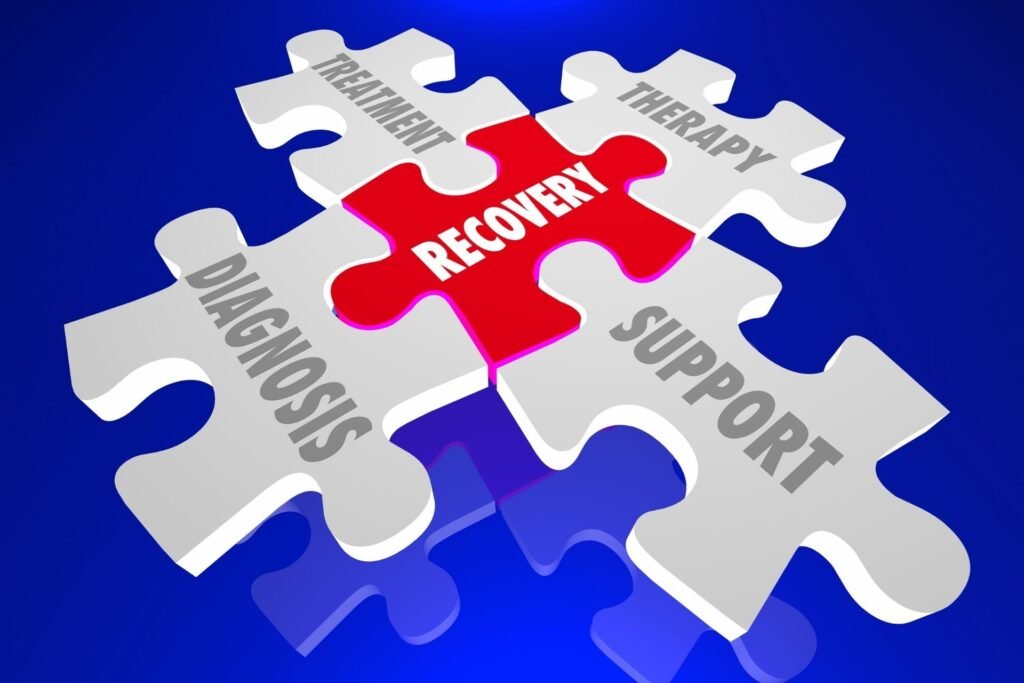Guide to Choosing the Right Rehab Center in Thailand
We have created this guide for anyone looking for an addiction rehab center in Thailand. For any individuals considering rehab, Thailand has emerged as a popular destination for addiction treatment. With its serene landscapes, welcoming culture, and world-class facilities, rehab centers in Thailand offer a unique and transformative experience. This guide explores the benefits of choosing a rehab center in Thailand, the comprehensive treatment options available, and why it appeals to many over western countries. Whether or not this is your first time seeking treatment with the right guidance before during and after rehab you can choose it to be your last.
Seeking help for addiction or substance abuse is a courageous step towards a healthier and happier life. Choosing the right rehab center is crucial for effective recovery and long-term sobriety. With numerous options available globally, the process might seem overwhelming at first, but this guide will assist you in making an informed decision about whether rehab is the best option and if so which is the most suitable rehab to suit your individual needs. Choosing a rehab center is a significant decision that can shape your path to recovery and long-term well-being.


After reading this guide we would encourage you to book a free no obligation 60 minute rehab consultation call with Brett Thornton (Yim Thai) Director of Counselling Thailand and rehab consultant at 12steprehabs.com
BA HONS, BHRT MASTERS AND PRACTITIONER DIPLOMA IN HYPNOTHERAPY & COUNSELLING
Brett is regarded by many industry professionals as one of the most respected addiction counsellors in Thailand.
As well as having many years of professional experience working in the field of addiction and recovery Brett also has direct personal experience of recovering from addiction with over 12 years of continuous sobriety. You can learn more about Brett by visiting his personal profile on our counselling team page.
What is Rehab and what does it Involve?
Rehabilitation, often referred to as rehab, is a comprehensive and structured program designed to help individuals struggling with addiction regain control of their lives, break free from harmful patterns, and embark on a journey towards lasting recovery. For those grappling with addiction, rehab provides a supportive and nurturing environment where they can learn essential coping skills, address underlying issues, and build a foundation for a healthier, substance-free life.
The earliest forms of addiction rehabilitation focused primarily on detoxification and medical treatment and were primarily found in hospitals or psychiatric establishments. These programs aimed to help individuals overcome physical dependence on substances, providing a foundation for later developments in addiction treatment. Over time, it became evident that addiction was not solely a physical issue, but also deeply rooted in psychological, emotional, and social factors.
Modern Approaches to Rehab
In recent decades, addiction treatment has continued to evolve, incorporating evidence-based practices, cutting-edge therapies, and a more comprehensive understanding of addiction. Today, rehab programs offer a diverse range of therapeutic techniques, the most successful being the 12 Steps, and many others including cognitive-behavioral therapy (CBT), dialectical behavior therapy (DBT), mindfulness-based interventions, and experiential therapies like art, music, and equine therapy. These approaches address not only the addiction itself but also the mental and emotional well-being of individuals.
Common Issues for Seeking Rehab
Rehabilitation programs are designed to address a wide range of physical, mental, and behavioral health issues. Here are some of the common areas for which individuals seek rehabilitation in Thailand:
Alcoholism
Drug Addiction
Sex Addiction
Trauma / PTSD
Codependency
Process Addictions: Food, gambling, gaming, workaholism
Rehab Process – Before, During & After
Pre-Rehab
Assessment and Suitability
When researching rehab centers in Thailand you can either contact the rehabs individually or you can you can an experienced rehab consultant.
Similar to mortgage brokers who can look at “the whole of market” a rehab consultant is not employed by any single rehab and their role is to provide recommendations based on your individual needs. Following an initial consultation call the rehab consultant will then make appropriate recommendations and the preferred rehab(s) will contact you directly. This service is normally offered to you for free and the rehab cost is no more than booking directly.
In fact, booking through a rehab consultant can provide additional benefits such as pre-rehab counselling and post rehab counselling such as:
Relapse Prevention
Advanced CBT / DBT Mindfulness
Trauma Therapy
Relationship, Couples, Child, Teen or Family Counselling
Career Counselling / Business Coaching
On Arrival – During Treatment
Detoxification (Detox): The first step in any addiction treatment is detoxification. Rehab centers in Thailand provide medically supervised detox programs to ensure a safe and comfortable withdrawal process.
Self detox can often be dangerous so please me honest and truthful during your FREE 60 minute Rehab assessment consultation call about the quantity and frequency of your usage.
Individual Therapy: Individual therapy sessions with qualified and experienced counsellors / therapists are crucial in addressing the underlying emotional, psychological, and behavioural aspects of addiction. These one-on-one sessions help individuals explore their experiences, emotions, and thought patterns to develop healthier coping mechanisms when dealing with triggers, cravings and urges. Most rehab centers in Thailand will offer 2 individual counselling sessions per week and it is usually recommended you work with the same counsellor (primary therapist) throughout your rehab program. Many counsellors, particularly those working in 12 Step Rehabs are often in recovery themselves so if this is something you feel important you can request this.
Group Therapy: Group therapy also known as group process normally takes place on a morning and forms an integral part of addiction treatment. Participants interact with others facing similar challenges, offering support, encouragement, and a sense of belonging. Group therapy enhances communication skills, empathy, and builds a strong network for continued recovery.
Psychoeducation Groups: Psychoeducation groups are structured therapeutic sessions within addiction rehab programs that aim to provide essential knowledge and understanding about addiction, recovery, and related psychological processes. These groups operate as supportive and educational forums where individuals can learn about the physiological and psychological aspects of addiction, underlying causes, coping strategies, and the skills needed for sustainable recovery. By equipping participants with knowledge and skills, psychoeducation groups empower them to make informed decisions, develop resilience, and navigate the challenges of recovery more effectively.
Post Relapse Prevention Plan – After rehab
Aftercare is often an afterthought which is one of the biggest reasons why people relapse after rehab. Addiction is a mental illness and like any physical injury or illness recovery takes time and daily maintenance is essential. Any reputable rehab will insist that each client creates their own relapse prevention / recovery plan before leaving rehab and many rehabs either offer their own aftercare / outpatient counselling post rehab or make recommendations to third party providers and some even cover the cost of this for an agreed period of time.


Why Choose Rehab in Thailand Over Western Countries
Reasons to Choose Addiction Treatment in Thailand
World-Class Facilities: Many rehab centers in Thailand offer modern amenities and high-quality facilities, ensuring a comfortable and safe environment for recovery.
Affordable Treatment: Compared to rehab centers in many western countries, Thailand offers more affordable treatment options without compromising on the quality of care. This affordability allows individuals to access comprehensive addiction treatment programs that may have been otherwise financially challenging.
Experienced Professionals: Thailand’s rehab centers boast a skilled and compassionate team of addiction specialists, therapists, and counselors who are well-versed in addressing the specific needs of international clients. Many of these counsellors particularly those working in 12 Step Rehabs are often in recovery from addiction themselves so have the major advantage or direct personal experience of recovering from addiction.
Serene Environment: One of the primary reasons people choose rehab centers in Thailand is the serene environment. The country’s beautiful beaches, lush jungles, and tranquil surroundings create a therapeutic atmosphere that fosters healing and self-discovery to help motivate individuals to embrace positive change and engage wholeheartedly in their recovery journey.
Disconnection from Familiar Triggers: By traveling to a foreign country like Thailand for rehab, individuals can physically distance themselves from familiar triggers, environments, social circles and unhealthy connections or associates.
Holistic Approach: Many rehab centers in Thailand incorporate a holistic approach to treatment, focusing on healing the mind, body, and spirit. This comprehensive method promotes overall well-being and empowers individuals to make lasting changes in their lives.
Privacy and Anonymity: Being away from one’s home country can offer a level of privacy and anonymity that may be important to some individuals seeking treatment.
Diverse International Community: Thailand’s popularity as a rehab destination attracts individuals from all over the world seeking treatment, creating a diverse and supportive community that fosters mutual understanding and empathy.
Supportive Community: One of Brett Thornton’s (Yim Thai) favourite sayings is
“The opposite of addiction is connection”. Engaging with people with similar issues from around the world can create a supportive therapeutic community.
In addition to connecting with fellow peers and rebab staff. Thailand is extremely fortunate to have several reputable 12 Step Rehabs all of which incorporate some of the key elements of the 12 Steps into their addiction treatment program. Most reputable rebab centers in Thailand will also introduce clients to 12 Step meetings such as AA (Alcoholics Anonymous) and NA (Narcotics Anonymous) as a way to strengthen their recovery both during and after treatment.
Cost and Recommended Duration for Rehab Centers in Thailand
Prices for a reputable rehab center in Thailand range between 8,000 and 20,000 USD for a 28 day stay. The minimum length of stay normally recommend is 8 weeks.
The majority of rehab centers provide a reduced fee for extended stays, and when arranging your stay through a rehab consultant, you may also receive extra advantages like pre-rehabilitation assistance such as pre rehab counselling, intervention guidance, post-rehab counselling, family therapy, and help with the visa application process for coming to Thailand.
Before contacting any rehabs we recommend you book a FREE 60 minute Rehab assessment consultation call to discuss things further and learn more about the rehab process and what best suits your needs.






